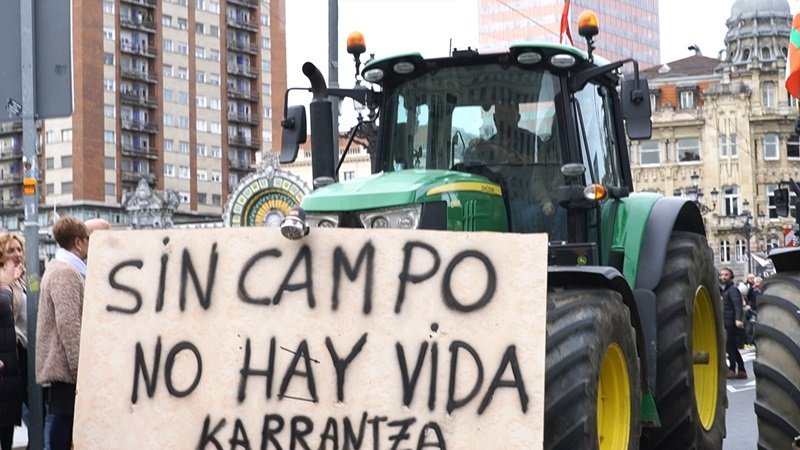EU Elections: Neoliberalism and repression of social movements explain the rise of the far right in Europe

Speaking to the news outlet Brasil De Fato, Morgan Ody, the General Coordinator of La Via Campesina, attributed the growth of the far right in the European Parliament and events in countries such as France, Germany, and Italy, to decades of neoliberal policies and systematic repression of social movements in recent years. We provide an excerpt from this report below:
“[In France] this situation is the result of brutal neoliberal policies and the repression of all social movements for several years, especially since Macron came to power. All social mobilizations have been repressed and many reforms have been made. This has put the working class in a very difficult situation in the country, especially in rural areas, with the destruction of public services. In this situation, people express their suffering with this vote.”
Ody, who lives in France, points out that the situation in the country is concerning, with new parliamentary elections in the face of a strengthened far right. Right-wing radicals in France garnered between 32.3% and 33% of the votes, while the alliance led by Macron’s party—liberal and of the traditional right—received between 14.8% and 15.2% of the votes. The list of the National Rally party is headed by Jordan Bardella, 28 years old. The main leader of the party is Marine Le Pen, who lost the French presidential election to Macron in 2022.
From the perspective of rural movements organized in La Via Campesina, Ody considers the risk situation imminent.
“It is very dangerous because the far right has no answers to the multiple social crises facing rural areas in Europe. Everything they are proposing – which includes combating migration, limiting the rights of migrant workers, rolling back environmental measures, and so forth – will not improve the situation of people living in rural areas. Yet, it must be said that the parties that have been implementing these neoliberal policies for a long time are also very responsible for this situation.”
The victory of the far right in France was not an isolated case. Other countries also saw extremist parties gain power in the European Parliament. This is the case in Germany: the Alternative for Germany party, known by its acronym AfD, became the second largest German party within the European Parliament—previously holding the fourth position. The conservative Brothers of Italy party, led by far-right Prime Minister Giorgia Meloni, obtained the highest number of votes in the Italian election for the European Parliament: around 29% of the votes, more than four times what it achieved in the last European Union election in 2019, and surpassing the 26% it secured in the 2022 national election.
Ody also emphasizes the importance of social and peasant movements uniting to present proposals that give hope to the European population, as a way to halt the electoral advance of the far right.
“Many people vote for the far right because they have no more hope. So, we have to deconstruct this vision that a better future with better public services, better incomes, better social rights for all is possible. Because what the far right is doing is pretending that the only way to protect the social rights of the French is to reduce the social rights of migrants. And we have to show that no, it is not like that. We have to defend the rights of migrants and also the social rights of the entire working class.”
Selected excerpt from a report by Leandro Melito, edited by Rodrigo Durão Coelho for Brasil De Fato. To read the full article, click here
